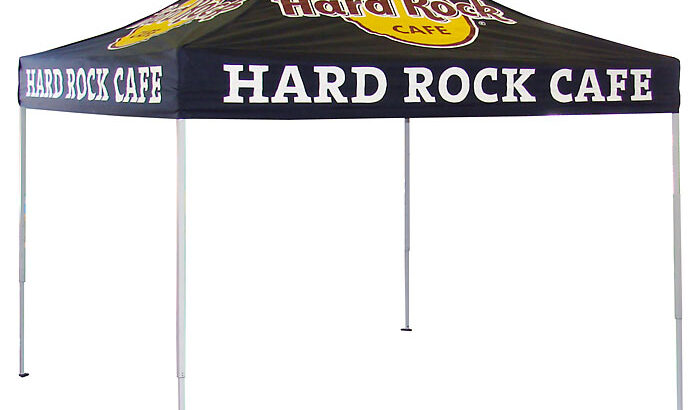Camping trips are a beloved pastime for many, but the thought of a flimsy tent susceptible to the elements can sometimes dampen the adventurous spirit. Fortunately, the future of tent design is brighter than ever, with innovative technologies paving the way for tent manufacturer (producent namiotow) that prioritize comfort and durability. This blog post will explore how these advancements are making camping experiences more enjoyable and accessible to all.
Innovative Materials for Enhanced Durability
One of the most significant advancements in tent design is the use of innovative materials that enhance durability. Modern tents often feature textiles like ripstop nylon and polyester, which resist tearing and withstand harsh weather conditions. These materials are lightweight yet incredibly strong, allowing campers to pack efficiently without compromising on strength.
Beyond conventional fabrics, some manufacturers are experimenting with even more advanced materials. For example, Dyneema composite fabric, known for its exceptional strength-to-weight ratio, is gaining popularity among high-end tent makers. The use of such cutting-edge materials ensures that tents last longer and perform better, providing peace of mind for campers.
Weather-Resistant Technologies
Technology is also revolutionizing how tents handle weather conditions. Many new designs incorporate advanced weather-resistant features to keep campers dry and comfortable. Seam-sealed waterproofing, for instance, is now standard in quality tents, preventing leaks during unexpected downpours.
Furthermore, UV-resistant coatings are applied to tent fabrics, protecting them from the sun’s harmful rays and prolonging their lifespan. This means that campers can enjoy their outdoor adventures without worrying about sun damage compromising their shelter. These weather-resistant technologies make it easier than ever to plan trips without the concern of unpredictable weather ruining the experience.
Smart Ventilation Systems
Another area where technology is making a significant impact is in tent ventilation systems. Traditional tents often suffer from poor airflow, leading to condensation and discomfort. However, modern designs incorporate smart ventilation solutions to address this issue.
Many tents now feature mesh windows and vents strategically placed to promote airflow while keeping bugs out. Some even have adjustable vents that campers can open or close depending on the weather, ensuring a comfortable interior climate. This emphasis on ventilation not only enhances comfort but also reduces the risk of mold and mildew, improving the overall camping experience.
Modular and Customizable Designs
Customization is becoming a trend in tent design, thanks to modular concepts. Campers can now tailor their tents to suit their specific needs and preferences. Modular designs allow users to add or remove sections of the tent, adapting it to different group sizes or camping scenarios.
This flexibility is especially valuable for families or groups of friends who want to customize their living space. Whether it’s adding an extra room for storage or creating a more spacious sleeping area, modular tents offer versatility that traditional designs cannot match. This adaptability ensures that campers can create the perfect setup for their adventure.
Eco-Friendly Innovations
Sustainability is a growing concern for outdoor enthusiasts, and tent manufacturers are responding with eco-friendly innovations. Many companies are committed to using recycled materials in their production processes, reducing their environmental footprint. Additionally, some tents feature biodegradable components, ensuring that they leave minimal impact on the ecosystem once their lifespan ends.
Eco-conscious campers can now choose tents that align with their values, knowing that their choice contributes to a healthier planet. These sustainable designs not only enhance the camping experience but also promote responsible outdoor practices, fostering a sense of stewardship among nature lovers.
Seamless Integration of Technology
Perhaps one of the most exciting developments in tent design is the seamless integration of technology. Smart tents equipped with solar panels and USB ports allow campers to charge their devices while enjoying the great outdoors. Some models even come with built-in LED lighting systems for added convenience and ambiance.
These technological advancements make camping more accessible to tech-savvy individuals who want to stay connected without sacrificing the joys of nature. The future of tent design is undoubtedly intertwined with technology, offering a perfect blend of comfort and functionality.
User-Friendly Assembly and Portability
Gone are the days of struggling with complicated tent setups. Modern tent designs prioritize user-friendly assembly, allowing campers to set up their shelters quickly and effortlessly. Pop-up tents, for instance, feature innovative mechanisms that enable them to spring into shape with minimal effort.
Additionally, advancements in tent packing techniques have led to more compact and lightweight designs. Campers can now carry their tents with ease, making it simpler to explore remote locations. This focus on portability ensures that outdoor adventures remain hassle-free and enjoyable for everyone.
Enhanced Safety Features
Safety is a top priority for any camper, and tent designs are evolving to address potential risks. Many new tents come equipped with reflective elements for increased visibility in low-light conditions. This feature is especially valuable in crowded campsites where tripping hazards may be present.
Fire-resistant materials are also being incorporated into tents, reducing the risk of accidents while cooking or using campfires nearby. These safety enhancements provide peace of mind, allowing campers to relax and fully immerse themselves in their outdoor experiences.
The Future of Comfortable Camping
In conclusion, the future of tent design is a testament to the power of technology in enhancing comfort and durability. With innovative materials, weather-resistant features, smart ventilation systems, and eco-friendly practices, modern tents offer campers a superior experience. The seamless integration of technology and user-friendly designs further elevate the camping adventure, making it accessible and enjoyable for everyone.
As tent manufacturers continue to push the boundaries of innovation, the possibilities are endless. The future holds even more exciting developments, promising a new era of comfortable and sustainable camping. For those eager to explore the great outdoors, the future of tent design is brighter than ever.





